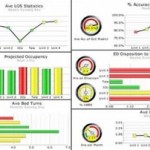
There is a very good chance that over the past decade or so you have experienced one or series of reviews, performance management meetings, appraisals, inspections, key performance indicators, benchmarks, bonus rewards and a myriad of similar management technologies that measured your ‘outputs’ and outputs of those in your care (eg. students). These would been compared, often quite regularly, and subsequently published for internal or external comparison, even ranking. Through these ‘events’, you had to, implicitly or explicitly, display ‘quality’ of your work, promote an active, enterprising, ever improving self according to some neat, objective (sounding) criteria which reduced complex social relations to a number, scale, list, standard, box or range.
Yes? Nothing new?
Now please, checking that people are performing, doing their job, is probably as old as labour itself. Didn’t catch that fish your people counted on – you all went hungry. Didn’t row fast enough in a slave galley – got whipped. Dug up enough dirt – got extra potato. Won a gold medal – got a bonus. Botched too many operations – got sued. Endless, really.
But there has been a shift in the educational landscape and beyond over the last fifteen or so years and the shift is intensifying. What counts as educative, valuable, effective, satisfactory performance and what measures of teacher and student achievement are considered valid has increasingly been determined remotely, outside the relational space of eg. teacher’s class of kids, school, community according to a set of distant, hyper-rational, objective-looking system that employs a stream of seductively neat, business-like judgements, criteria, standards, categories and benchmarks.
There’s an increasingly dynamic, ever-changing and incessant flow of changing demands, expectations, indications making teachers and students continually accountable and recorded, measured. Educators’ primary tasks (curriculum, care for students, engagement, research) have increased in volume but so have the second-order tasks of monitoring, reporting, documenting, and, put crudely, ‘putting the best foot forward’. In many cases, the secondary tasks of ‘performing’ has assumed the primacy. To make things worse, it’s not always clear what is expected.
And the most corrosive aspect? What is expected is inconsistent with teachers’ own best ethical and professional judgement. Teachers are increasingly made to value things that ‘count’ but know they don’t matter over things they think matter but don’t ‘count’.
Lyotard called it a system of ‘performative terror’. You are stuck, not sure what you do, question yourself, wonder which is ‘the right thing’ … and more.
Some of the main effects, observed and reported widely in USA, UK and Australia? Increased stress, and pressure, increased pace and intensity of work, change in social relationships and (eroded) collegiality among teachers, rising superficiality of measures, initiatives and changes, more paperwork and maintenance, more surveillance, rising gap in perspectives, values and purposes between budget-allocating, managerial senior staff or higher and those below, on the ground dealing with students, and more …
By way of a couple of vignettes via Stephen Ball:
What happened to my creativity? What happened to my professional integrity? What happened to the fun in teaching and learning? What happened?
I was a primary school teacher for 22 years but left because I was not prepared to sacrifice the children for the glory of politicians and their business plans for education.
It’s as though children are mere nuts and bolts on some distant production line, and it angers me to see them treated so clinically in their most sensitive and formative years.
I have a sprinkling right through this site too, this story perhaps the most notable one.
This is just a glance at the phenomenon, the technology described producing these effects. It’s called performativity.
Know it? Got stories? Let me know. It is one of the central concepts I am looking at in my PhD project. Thanks.
References (if interested… not even a scratch here, rich field of research exists, check Stephen Ball in particular):
Ball, S. J. (2003) The teacher’s soul and the terrors of performativity. Journal of Education Policy, 2003, vol. 18, no. 2, p. 215-228.
Lyotard, J.-F. (1984) The Postmodern Condition: a report on knowledge, vol. 10. Manchester: Manchester University Press.